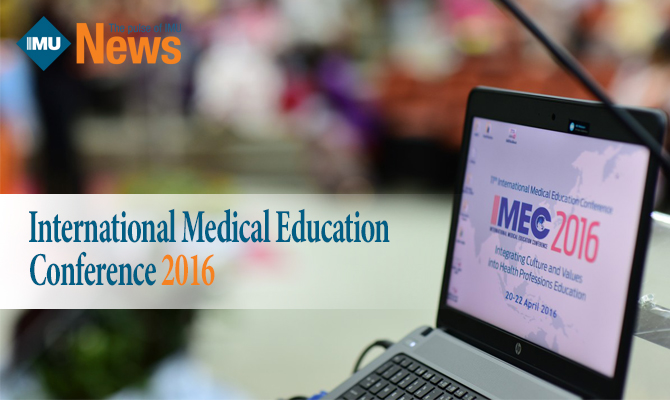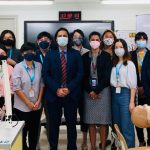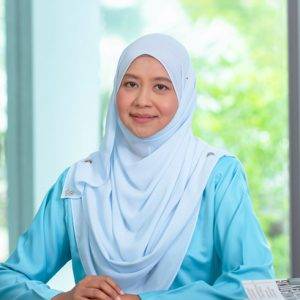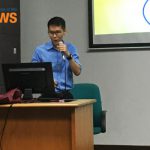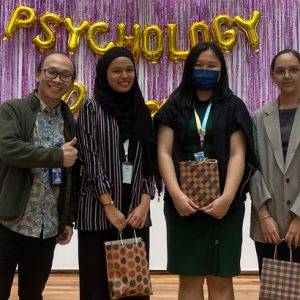Internationally renowned experts emphasise the importance of cultural diversity and values in the provision of quality education to healthcare professionals
Kuala Lumpur, 20-22 April 2016 – The importance of instilling cultural sensitivity into those training to be future healthcare professionals were key areas of focus at the recently held 11th International Medical Education Conference (IMEC). Organised by the International Medical University’s (IMU) Centre for Education from April 20 to 22 2016, the Conference saw a participation of 280 delegates from 25 countries with international experts from the United Kingdom, Canada, Sweden, Finland, Australia, Singapore and Malaysia shedding light on a crucial but less discussed area of health and medical care. 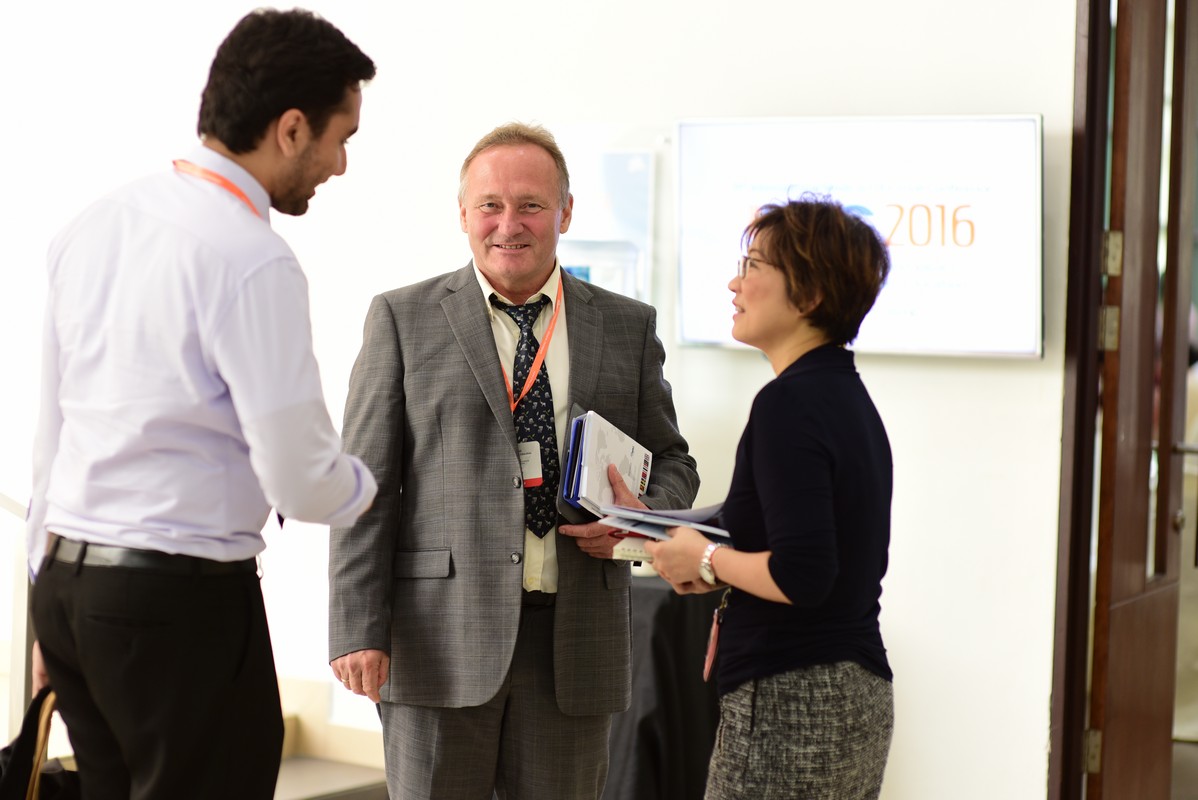 Academics and experts in health professions education discussed on the role, interpretation and impact of culture and values, which are becoming increasingly important in the field of health and medical care as health professionals expand their careers beyond geographical borders. The 11th IMEC Organising Committee Chair, A/Prof Dr Stefan Kutzsche further explained the theme ‘Integrating Culture and Values into Health Professions Education’ was specially chosen for this year’s IMEC given IMU’s own rich experience and expertise in, transferring medical and health professions students to its partner schools, international student mobility and IMU Cares projects in healthcare.
Academics and experts in health professions education discussed on the role, interpretation and impact of culture and values, which are becoming increasingly important in the field of health and medical care as health professionals expand their careers beyond geographical borders. The 11th IMEC Organising Committee Chair, A/Prof Dr Stefan Kutzsche further explained the theme ‘Integrating Culture and Values into Health Professions Education’ was specially chosen for this year’s IMEC given IMU’s own rich experience and expertise in, transferring medical and health professions students to its partner schools, international student mobility and IMU Cares projects in healthcare. 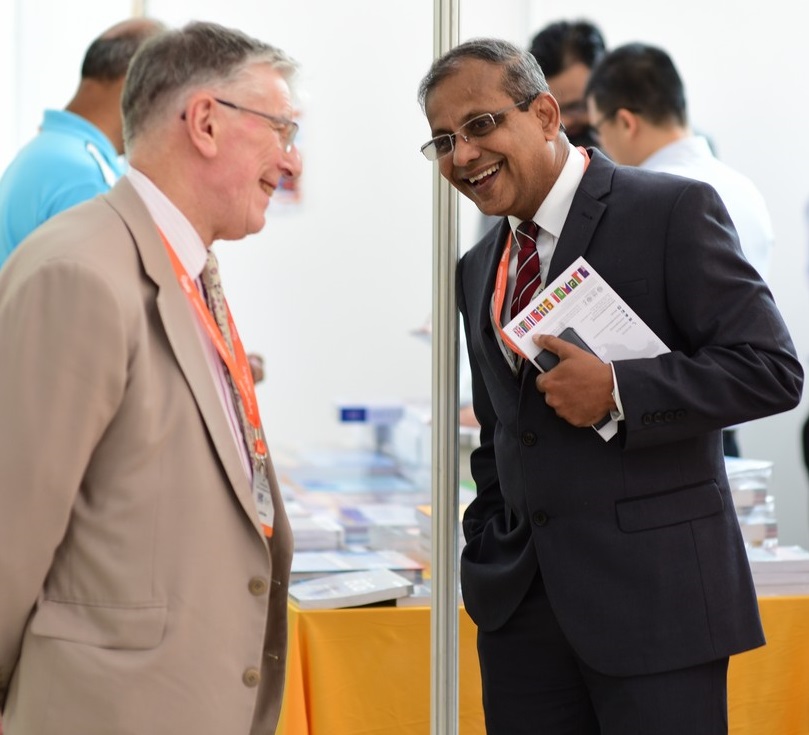 The event opened with a Welcome Address by IMU Group’s President, YBhg Tan Sri Dato’ Dr Abu Bakar Suleiman who shared his experience in managing cultural diversity and its complexity as a healthcare professional. He also impressed on the importance of the value system and the need to avoid stereotyping and prejudiced views in which an individual’s cultural identity and values are not superior or inferior… it is just different. This was followed by a Keynote address by Prof Ronald Harden, Editor of Medical Teacher and General Secretary and Treasurer of the Association for Medical Education (AMEE), Europe, which discussed the ‘Cultural Competency in the Real World and the School without Boundaries’. When polled, many participants felt that the cultural competency of their students would be at the level of a “mono cultural mindset” (denial / polarisation / minimisation), and agreed that we should move to the top of the cultural competency ladder or “inter cultural mindset” (acceptance / adaptation / integration).
The event opened with a Welcome Address by IMU Group’s President, YBhg Tan Sri Dato’ Dr Abu Bakar Suleiman who shared his experience in managing cultural diversity and its complexity as a healthcare professional. He also impressed on the importance of the value system and the need to avoid stereotyping and prejudiced views in which an individual’s cultural identity and values are not superior or inferior… it is just different. This was followed by a Keynote address by Prof Ronald Harden, Editor of Medical Teacher and General Secretary and Treasurer of the Association for Medical Education (AMEE), Europe, which discussed the ‘Cultural Competency in the Real World and the School without Boundaries’. When polled, many participants felt that the cultural competency of their students would be at the level of a “mono cultural mindset” (denial / polarisation / minimisation), and agreed that we should move to the top of the cultural competency ladder or “inter cultural mindset” (acceptance / adaptation / integration).
“We should not think of cultural competency simply in terms of patient’s ethnicity and religion but also in terms of the individual patient’s problems and behaviour” said Prof Harden. He also added in addition to such a patient-centered view of cultural competency, it is also important to have an inward looking view where we look at cultures within the different healthcare professions and the impact this has on teamwork.
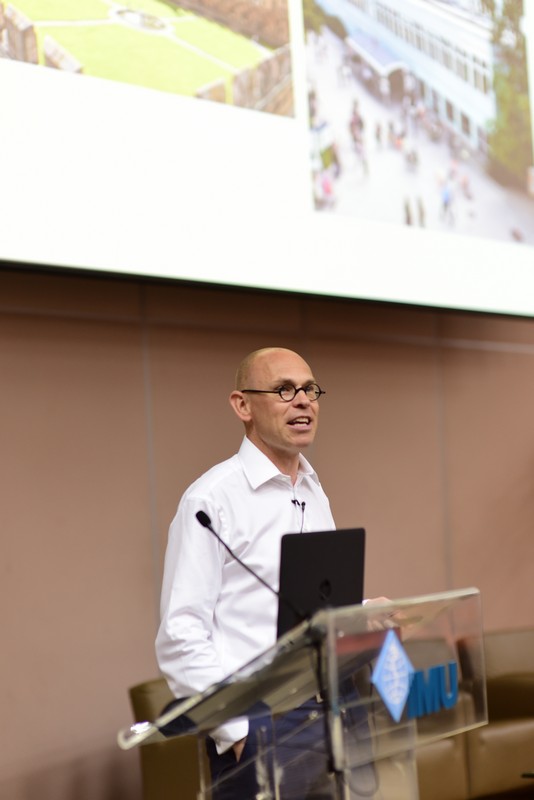 Other eminent speakers plenary speakers featured Dr Jonas Nordquist, Director of Medical Case Centre at Karolinska Institutet, Sweden; Dr Ben Furman, Director of Helsinki Brief Therapy Institute, Finland; Prof Lambert Schuwirth, Strategic Professor in Medical Education at the Flinders University, Australia and Prof Matthew Gwee who is currently the Professorial Fellow in the Department of Pharmacology and Interim Director, Medical Education Unit, Faculty of Medicine at the National University Health System, Singapore.
Other eminent speakers plenary speakers featured Dr Jonas Nordquist, Director of Medical Case Centre at Karolinska Institutet, Sweden; Dr Ben Furman, Director of Helsinki Brief Therapy Institute, Finland; Prof Lambert Schuwirth, Strategic Professor in Medical Education at the Flinders University, Australia and Prof Matthew Gwee who is currently the Professorial Fellow in the Department of Pharmacology and Interim Director, Medical Education Unit, Faculty of Medicine at the National University Health System, Singapore. 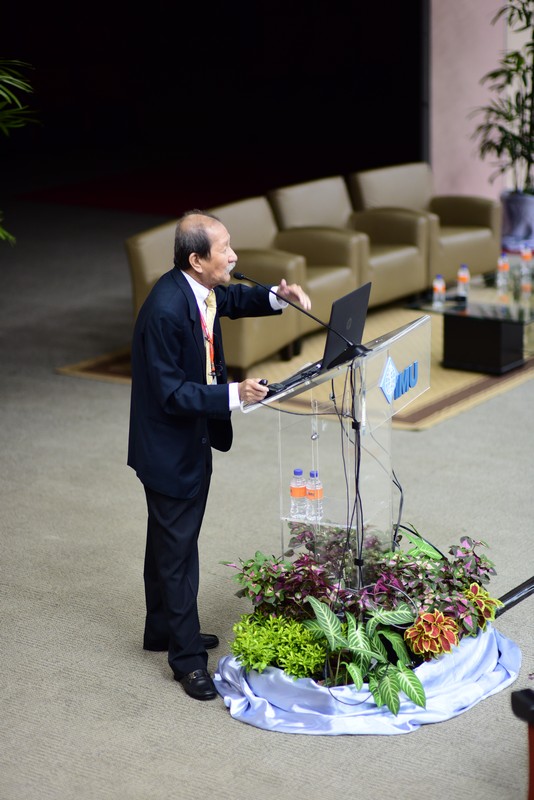 In the interactive forum that discussed about “The Road to Service Learning: Cross-Cultural Competence and Cultural Communication in Different Service Learning Settings”, the panel of speakers shared a wide spectrum of situations such as the learning experience of diverse health attitudes and cultural differences faced by medical mission volunteers in international environments. Prof Ong Kok Hai, Head of IMU’s Serving the Community Programme, IMU Cares shared that, “While it is important to develop professional and clinical related competencies, it is just as important for healthcare professionals to be culturally sensitive towards the communities that they serve. A lack of understanding of other cultures and values can cause miscommunication, which could lead to serious consequences in the field of health and medical care where communication is so crucial.”
In the interactive forum that discussed about “The Road to Service Learning: Cross-Cultural Competence and Cultural Communication in Different Service Learning Settings”, the panel of speakers shared a wide spectrum of situations such as the learning experience of diverse health attitudes and cultural differences faced by medical mission volunteers in international environments. Prof Ong Kok Hai, Head of IMU’s Serving the Community Programme, IMU Cares shared that, “While it is important to develop professional and clinical related competencies, it is just as important for healthcare professionals to be culturally sensitive towards the communities that they serve. A lack of understanding of other cultures and values can cause miscommunication, which could lead to serious consequences in the field of health and medical care where communication is so crucial.” 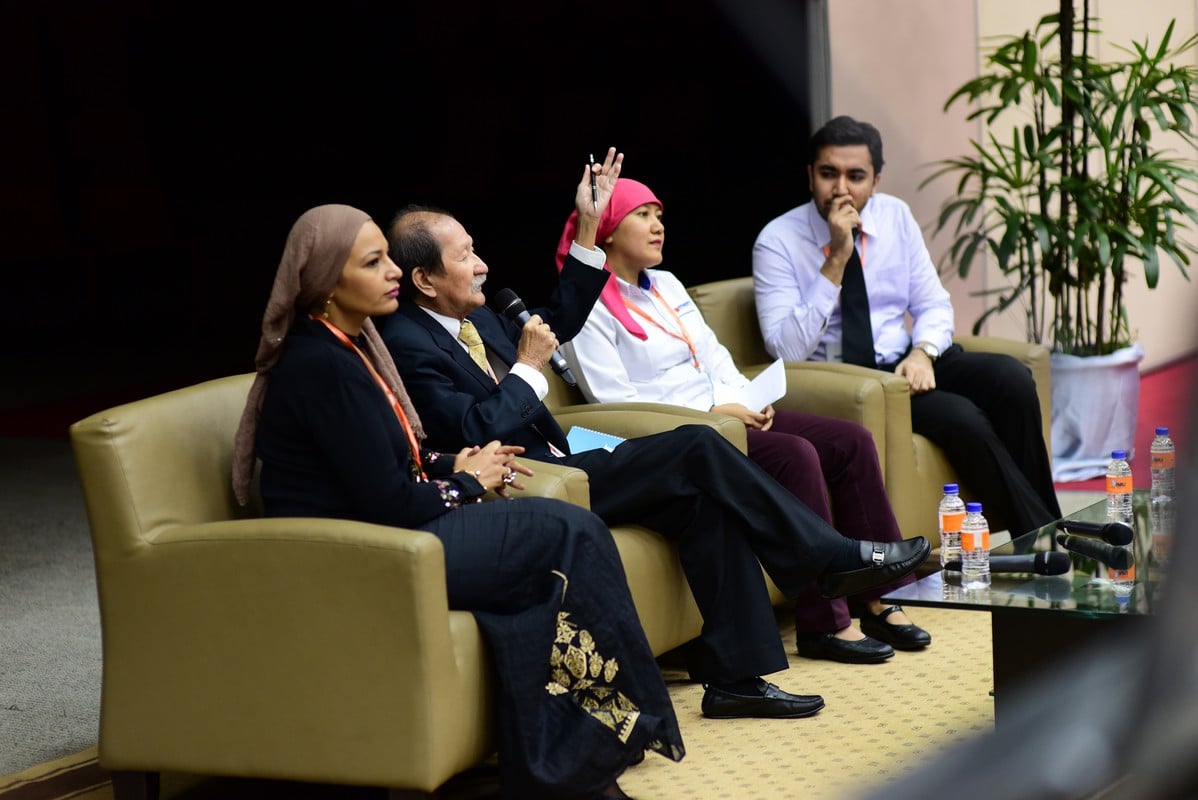 The second interactive forum on leadership in health professions education was equally thought provoking with eminent speakers from across the globe. Dr Dick Churchill from Nottingham University discussed challenges of leadership in community healthcare, suggesting that universities need to leave its ‘ivory tower’ and engage or partner more with communities to remove the culture and values barriers. Prof Abdul Aziz Baba, IMU’s Vice-Chancellor gave a reflective and insightful perspective on leadership as he presented the USM experience of establishing a medical programme in Belgaum, India. The third speaker Dr Kathy Boursicot from Singapore, raised issues about definitions of leadership and the lack of diversity in top leadership in universities. More reflections by Prof Ronald Harden: What do we mean by cultural competency? Participants’ views on the conference (in Bahasa Indonesia) : Delegasi FK UII Ikuti Konferensi Medis Internasional di Malaysia
The second interactive forum on leadership in health professions education was equally thought provoking with eminent speakers from across the globe. Dr Dick Churchill from Nottingham University discussed challenges of leadership in community healthcare, suggesting that universities need to leave its ‘ivory tower’ and engage or partner more with communities to remove the culture and values barriers. Prof Abdul Aziz Baba, IMU’s Vice-Chancellor gave a reflective and insightful perspective on leadership as he presented the USM experience of establishing a medical programme in Belgaum, India. The third speaker Dr Kathy Boursicot from Singapore, raised issues about definitions of leadership and the lack of diversity in top leadership in universities. More reflections by Prof Ronald Harden: What do we mean by cultural competency? Participants’ views on the conference (in Bahasa Indonesia) : Delegasi FK UII Ikuti Konferensi Medis Internasional di Malaysia 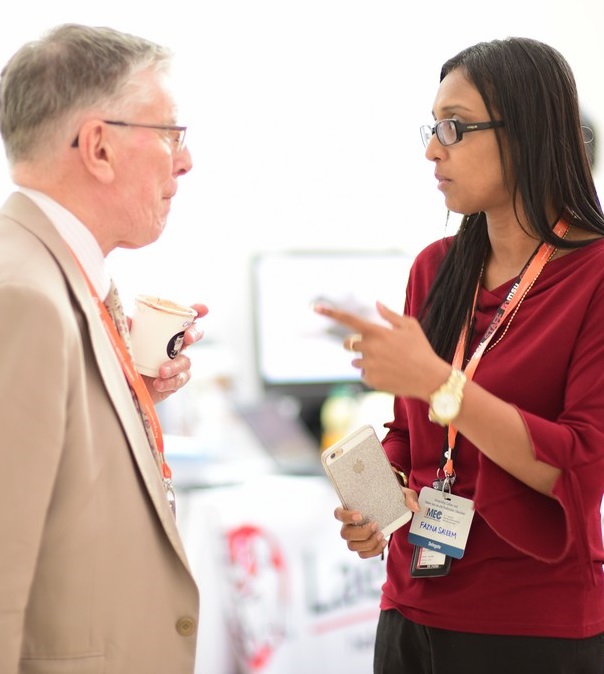 Besides the plenaries and forums, there was also the much awaited ‘faculty versus students’ debate focusing on the topic “Can universities be truly diverse”, allowing students to showcase their level of wit and persuasion alongside that of their educators. There were also posters and oral presentations by students, researchers and academics from around the world. IMU’s Psychology final year student, See Sher Rene, was one of the winners for “The Best Oral Presentation” entitled: The Effect of Positive Reappraisal on Perceived Stress and Psychological Well-being among University Students. “I am honoured and thankful to IMU and the IMEC committee for the opportunity to present my research in the recent 11th IMEC 2016. Looking back at the whole experience, it was both inspiring yet overwhelming to be able to share my ideas with delegates from around the world. Nevertheless, it was truly an amazing learning experience and I couldn’t have done it without the support from lecturers, family and friends. I would also like to express my gratitude to my supervisor, Dr Nicole Chen for her continuous guidance and support throughout the journey”, said See.
Besides the plenaries and forums, there was also the much awaited ‘faculty versus students’ debate focusing on the topic “Can universities be truly diverse”, allowing students to showcase their level of wit and persuasion alongside that of their educators. There were also posters and oral presentations by students, researchers and academics from around the world. IMU’s Psychology final year student, See Sher Rene, was one of the winners for “The Best Oral Presentation” entitled: The Effect of Positive Reappraisal on Perceived Stress and Psychological Well-being among University Students. “I am honoured and thankful to IMU and the IMEC committee for the opportunity to present my research in the recent 11th IMEC 2016. Looking back at the whole experience, it was both inspiring yet overwhelming to be able to share my ideas with delegates from around the world. Nevertheless, it was truly an amazing learning experience and I couldn’t have done it without the support from lecturers, family and friends. I would also like to express my gratitude to my supervisor, Dr Nicole Chen for her continuous guidance and support throughout the journey”, said See. 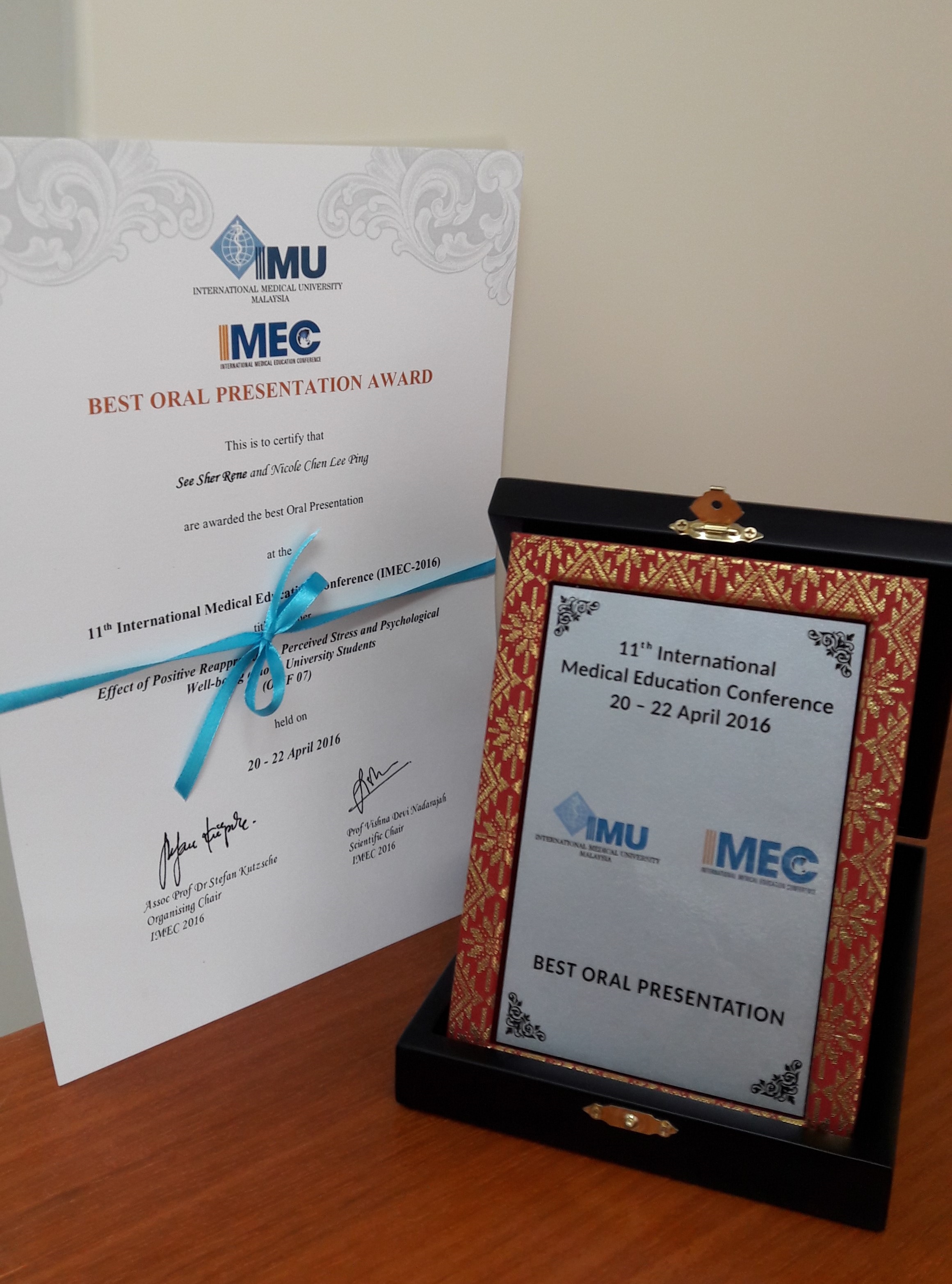 One of the major highlights of the IMEC every year is the exciting array of presentations by hopeful academics that have been shortlisted for the prestigious IMU-Ron Harden Innovation in Medical Education (IMU-RHIME) Award. The IMU-RHIME award was first introduced in 2008 during the International Medical Education Conference of that year and strives to encourage innovations in the field of medical and health professions education. The award honors Professor Ronald Harden for his significant contributions to the inception and success of IMU.
One of the major highlights of the IMEC every year is the exciting array of presentations by hopeful academics that have been shortlisted for the prestigious IMU-Ron Harden Innovation in Medical Education (IMU-RHIME) Award. The IMU-RHIME award was first introduced in 2008 during the International Medical Education Conference of that year and strives to encourage innovations in the field of medical and health professions education. The award honors Professor Ronald Harden for his significant contributions to the inception and success of IMU. 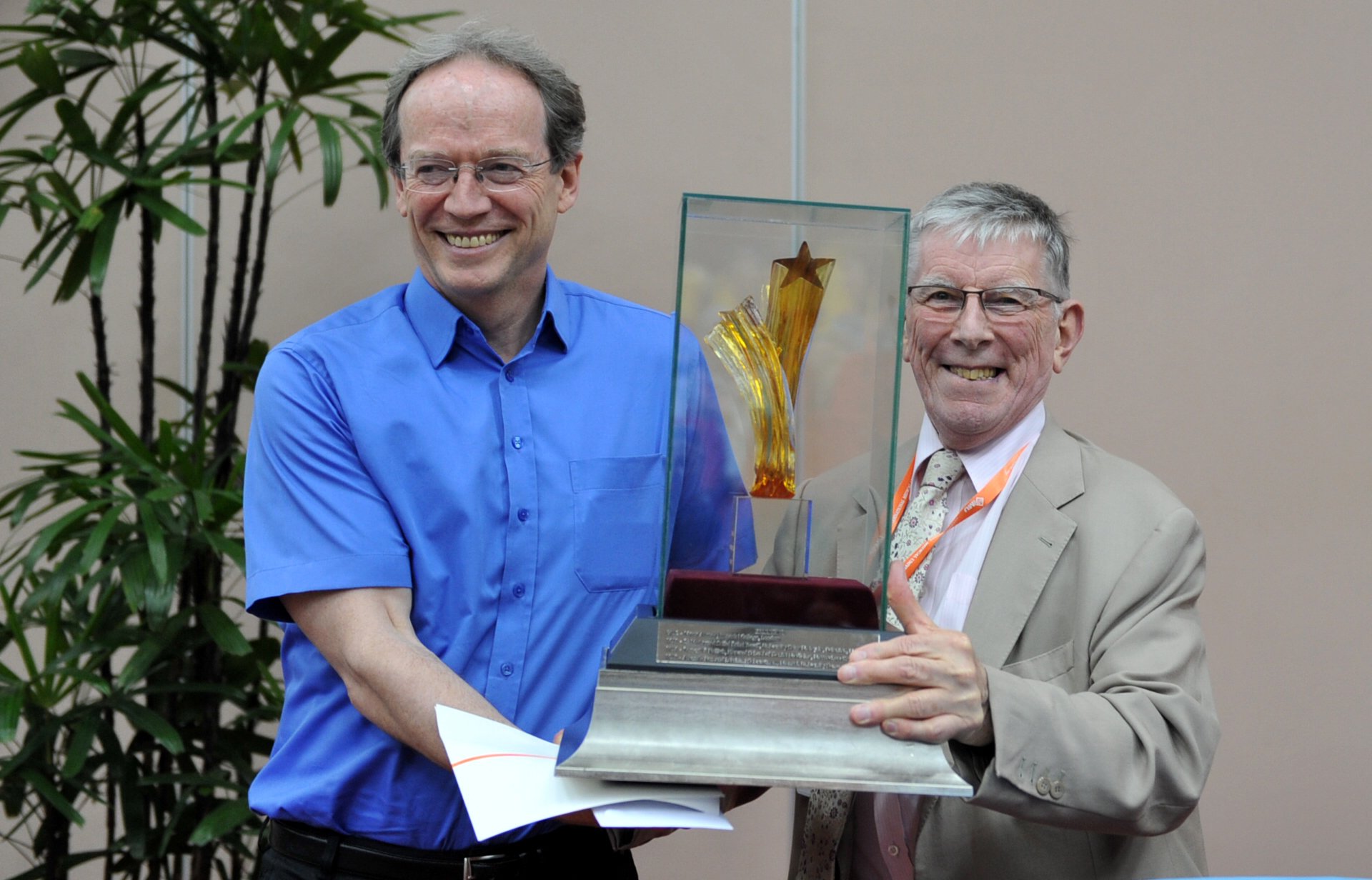 “Innovation is important, as it allows us to keep up with the ways that society is changing. There is always room for improvement in medical and health sciences education, and this award is meant to encourage researchers and academics all over the world to take steps towards that direction,” said Prof Ronald Harden. This year’s submissions follow the theme of Integrating Culture and Values into Health Professions Education (HPE) and the winning authors were Chris O’Callaghan and Chris Wiliams from the Institute of Child Health, University College London, United Kingdom with their project title “Development and evaluation of a video intense, context specific, multimedia training program for Africa: Opthalmology”. The winning team was awarded the IMU-RHIME Trophy and a cash prize of RM 2,000.
“Innovation is important, as it allows us to keep up with the ways that society is changing. There is always room for improvement in medical and health sciences education, and this award is meant to encourage researchers and academics all over the world to take steps towards that direction,” said Prof Ronald Harden. This year’s submissions follow the theme of Integrating Culture and Values into Health Professions Education (HPE) and the winning authors were Chris O’Callaghan and Chris Wiliams from the Institute of Child Health, University College London, United Kingdom with their project title “Development and evaluation of a video intense, context specific, multimedia training program for Africa: Opthalmology”. The winning team was awarded the IMU-RHIME Trophy and a cash prize of RM 2,000.
Best 6 Oral Presentations
| Psychiatrists Better at Therapy, or Better Psychiatrists with Therapy? A Survey of Competencies in Psychotherapy and Impact on Clinical Care |
Lim Wen Phei and Lim Yong Hao Tan Tock Seng Hospital, Singapore and HOMER, National Healthcare Group, Singapore |
| Effect of Positive Reappraisal on Perceived Stress and Psychological Wellbeing among University Students |
See Sher Rene and Nicole Chen Lee Ping International Medical University, Bukit Jalil, Kuala Lumpur, Malaysia |
| Stretching the Boundaries of Medical Education: A Case of Medical College Embracing Humanities and Social Sciences in Undergraduate Medical Education |
Kulsoom Ghias, Rukhsana Ali, Kausar S. Khan, Shireen Azfar and Rashida Ahmed Aga Khan University, Karachi, Pakistan |
| Concept Mapping Care Plan Versus Traditional Care Nursing Care Plan towards Nursing Students’ Clinical Decision Making Ability in a Tertiary Hospital, Malaysia |
Ho Siew Eng, Nabishah Mohamad, Chung Hing Teck and Widad Osman International Medical University, Kuala Lumpur, Malaysia, Universiti Kebangsaan Malaysia, Selangor, Malaysia and Open University Malaysia |
| Malaysian Medical Professionalism Taxonomy: Developing a Timely Definition That Connects to Cultural Context |
Nurhanis Syazni Roslan, Ahmad Fuad Abd Rahim, Zabidi Azhar Hussin, Muhamad Saiful Bahri Yusoff Universiti Sains Malaysia, Kelantan, Malaysia |
| Does Myanmar – International Medical University Community Collaborative Project (MICCP) 2015 Enhance Student Authentic Learning? |
Ni Ni Win, Ranjit De Alwis, Edward Russell Crowther and Htar Htar Aung International Medical University, Bukit Jalil, Kuala Lumpur, Malaysia. (Read more about the project in this article: IMU Cares: A Myanmar – IMU Collaborative Community Project 2015) |
Best 6 Poster Presentations
| Value Added Curriculum: Taylor-ing the Ophthalmology Module |
Prabal Bhargava, Benjamin SPE and Nurjahan MI Taylor’s University, Selangor, Malaysia |
| Orienting Malaysian Students on Research Ethics in Cross-cultural context:Experiences from an Indian Medical School |
Vasudha Devi, Awanis Binti Awaludin, Amira Fathin Aqilah Binti Muhd Hanif, Mohamed Faris Aiman Bin Mohamed Iqbal and Lim Yi Ting Melaka Manipal Medical College, Manipal University, Manipal, India |
| Integrated Culturally Competent Communication Skills Using Multimedia Teaching, Role Play and Feedback |
Carmen Wong, Shekhar Kumta, Paul Lai and Samuel Yeung Shan Wong The Chinese University of Hong Kong, Shatin, Hong Kong |
| Using Video Recorded Simulation to Train Examiners to Standard Set &Standardize Marking in an OSCE |
Chan Sook Ching, Yip Hung Loong, Lili Zuryani Marmuji, Lee Tong Weng and Sheikh Mohd Amin Universiti Kuala Lumpur Royal College of Medicine Perak, Malaysia and Academy of Family Physicians of Malaysia |
| Will differences in the Judges’ Background Influence Their Decision During Standard Setting for OSCE? |
Yip Hung Loong, Chan Sook Ching, Lili Zuryani Marmuji, Lee Tong Weng and Sheikh Mohd Amin Universiti Kuala Lumpur Royal College of Medicine Perak, Malaysia and Academy of Family Physicians of Malaysia |
| Relationship between Difficulty and Discrimination Indices in Item Analysis of One-Best-Answer Multiple Choice Questions (MCQ) for Undergraduate Orthopaedics and Psychiatry |
Kwa Siew Kim, Abdul Kareem Bhurhanudeen, Zainab Abdul Majeed and Ooi Hong Li International Medical University, Clinical School Seremban, Negeri Sembilan, Malaysia and Analyst Tamarind Energy, Kuala Lumpur, Malaysia |
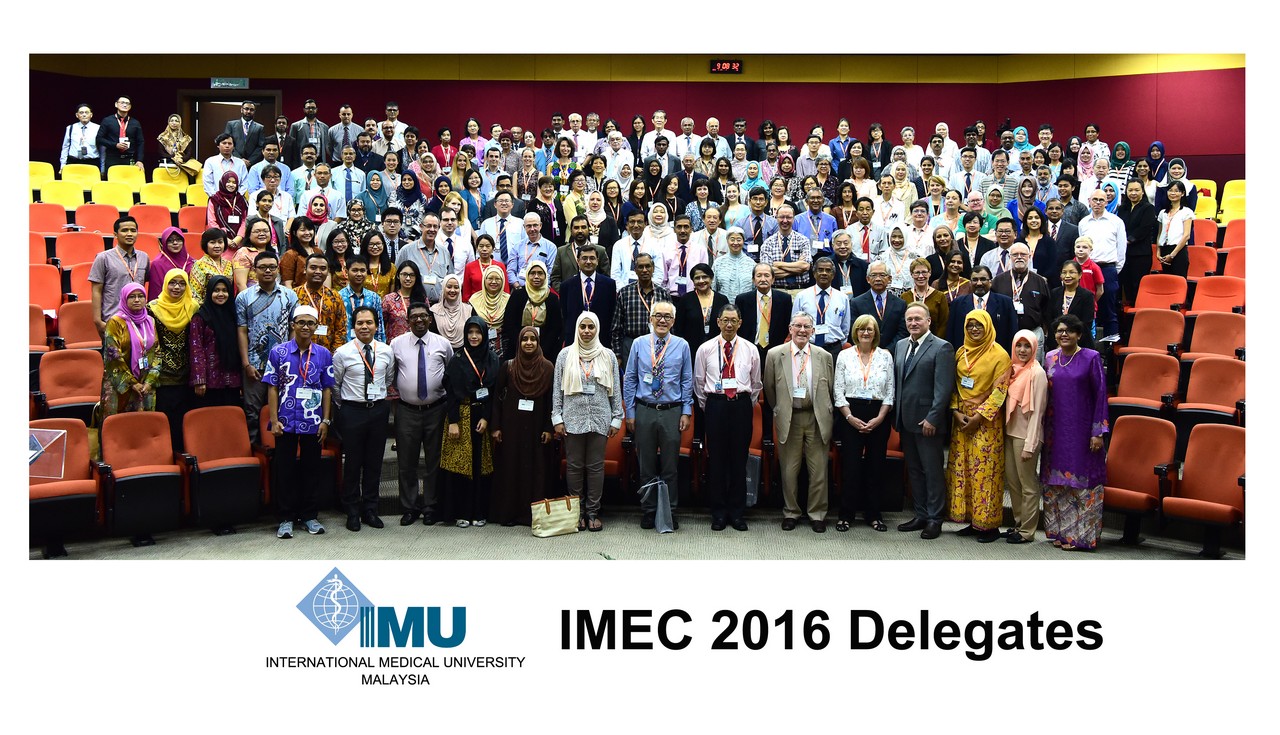 IMEC has, over the years, established itself as a premier international conference of medical education experts, practicing healthcare professionals, policy makers or educational planners, accreditation and professional boards, health or educational NGOs, as well as undergraduate and postgraduate students in the field of medicine and health care from around the world to discuss, exchange of ideas and experience and showcase innovations. The 12th IMEC theme explores the broader issue of ‘Health Professions Education without Borders’; and will be from the 7 to 9 April, 2017. More information on the 2017 Conference is available on https://www.imu.edu.my/imec2017/.
IMEC has, over the years, established itself as a premier international conference of medical education experts, practicing healthcare professionals, policy makers or educational planners, accreditation and professional boards, health or educational NGOs, as well as undergraduate and postgraduate students in the field of medicine and health care from around the world to discuss, exchange of ideas and experience and showcase innovations. The 12th IMEC theme explores the broader issue of ‘Health Professions Education without Borders’; and will be from the 7 to 9 April, 2017. More information on the 2017 Conference is available on https://www.imu.edu.my/imec2017/.
 Academics and experts in health professions education discussed on the role, interpretation and impact of culture and values, which are becoming increasingly important in the field of health and medical care as health professionals expand their careers beyond geographical borders. The 11th IMEC Organising Committee Chair, A/Prof Dr Stefan Kutzsche further explained the theme ‘Integrating Culture and Values into Health Professions Education’ was specially chosen for this year’s IMEC given IMU’s own rich experience and expertise in, transferring medical and health professions students to its partner schools, international student mobility and IMU Cares projects in healthcare.
Academics and experts in health professions education discussed on the role, interpretation and impact of culture and values, which are becoming increasingly important in the field of health and medical care as health professionals expand their careers beyond geographical borders. The 11th IMEC Organising Committee Chair, A/Prof Dr Stefan Kutzsche further explained the theme ‘Integrating Culture and Values into Health Professions Education’ was specially chosen for this year’s IMEC given IMU’s own rich experience and expertise in, transferring medical and health professions students to its partner schools, international student mobility and IMU Cares projects in healthcare.  The event opened with a Welcome Address by IMU Group’s President, YBhg Tan Sri Dato’ Dr Abu Bakar Suleiman who shared his experience in managing cultural diversity and its complexity as a healthcare professional. He also impressed on the importance of the value system and the need to avoid stereotyping and prejudiced views in which an individual’s cultural identity and values are not superior or inferior… it is just different. This was followed by a Keynote address by Prof Ronald Harden, Editor of Medical Teacher and General Secretary and Treasurer of the Association for Medical Education (AMEE), Europe, which discussed the ‘Cultural Competency in the Real World and the School without Boundaries’. When polled, many participants felt that the cultural competency of their students would be at the level of a “mono cultural mindset” (denial / polarisation / minimisation), and agreed that we should move to the top of the cultural competency ladder or “inter cultural mindset” (acceptance / adaptation / integration).
The event opened with a Welcome Address by IMU Group’s President, YBhg Tan Sri Dato’ Dr Abu Bakar Suleiman who shared his experience in managing cultural diversity and its complexity as a healthcare professional. He also impressed on the importance of the value system and the need to avoid stereotyping and prejudiced views in which an individual’s cultural identity and values are not superior or inferior… it is just different. This was followed by a Keynote address by Prof Ronald Harden, Editor of Medical Teacher and General Secretary and Treasurer of the Association for Medical Education (AMEE), Europe, which discussed the ‘Cultural Competency in the Real World and the School without Boundaries’. When polled, many participants felt that the cultural competency of their students would be at the level of a “mono cultural mindset” (denial / polarisation / minimisation), and agreed that we should move to the top of the cultural competency ladder or “inter cultural mindset” (acceptance / adaptation / integration).  Other eminent speakers plenary speakers featured Dr Jonas Nordquist, Director of Medical Case Centre at Karolinska Institutet, Sweden; Dr Ben Furman, Director of Helsinki Brief Therapy Institute, Finland; Prof Lambert Schuwirth, Strategic Professor in Medical Education at the Flinders University, Australia and Prof Matthew Gwee who is currently the Professorial Fellow in the Department of Pharmacology and Interim Director, Medical Education Unit, Faculty of Medicine at the National University Health System, Singapore.
Other eminent speakers plenary speakers featured Dr Jonas Nordquist, Director of Medical Case Centre at Karolinska Institutet, Sweden; Dr Ben Furman, Director of Helsinki Brief Therapy Institute, Finland; Prof Lambert Schuwirth, Strategic Professor in Medical Education at the Flinders University, Australia and Prof Matthew Gwee who is currently the Professorial Fellow in the Department of Pharmacology and Interim Director, Medical Education Unit, Faculty of Medicine at the National University Health System, Singapore.  In the interactive forum that discussed about “The Road to Service Learning: Cross-Cultural Competence and Cultural Communication in Different Service Learning Settings”, the panel of speakers shared a wide spectrum of situations such as the learning experience of diverse health attitudes and cultural differences faced by medical mission volunteers in international environments. Prof Ong Kok Hai, Head of IMU’s Serving the Community Programme, IMU Cares shared that, “While it is important to develop professional and clinical related competencies, it is just as important for healthcare professionals to be culturally sensitive towards the communities that they serve. A lack of understanding of other cultures and values can cause miscommunication, which could lead to serious consequences in the field of health and medical care where communication is so crucial.”
In the interactive forum that discussed about “The Road to Service Learning: Cross-Cultural Competence and Cultural Communication in Different Service Learning Settings”, the panel of speakers shared a wide spectrum of situations such as the learning experience of diverse health attitudes and cultural differences faced by medical mission volunteers in international environments. Prof Ong Kok Hai, Head of IMU’s Serving the Community Programme, IMU Cares shared that, “While it is important to develop professional and clinical related competencies, it is just as important for healthcare professionals to be culturally sensitive towards the communities that they serve. A lack of understanding of other cultures and values can cause miscommunication, which could lead to serious consequences in the field of health and medical care where communication is so crucial.”  The second interactive forum on leadership in health professions education was equally thought provoking with eminent speakers from across the globe. Dr Dick Churchill from Nottingham University discussed challenges of leadership in community healthcare, suggesting that universities need to leave its ‘ivory tower’ and engage or partner more with communities to remove the culture and values barriers. Prof Abdul Aziz Baba, IMU’s Vice-Chancellor gave a reflective and insightful perspective on leadership as he presented the USM experience of establishing a medical programme in Belgaum, India. The third speaker Dr Kathy Boursicot from Singapore, raised issues about definitions of leadership and the lack of diversity in top leadership in universities. More reflections by Prof Ronald Harden: What do we mean by cultural competency? Participants’ views on the conference (in Bahasa Indonesia) : Delegasi FK UII Ikuti Konferensi Medis Internasional di Malaysia
The second interactive forum on leadership in health professions education was equally thought provoking with eminent speakers from across the globe. Dr Dick Churchill from Nottingham University discussed challenges of leadership in community healthcare, suggesting that universities need to leave its ‘ivory tower’ and engage or partner more with communities to remove the culture and values barriers. Prof Abdul Aziz Baba, IMU’s Vice-Chancellor gave a reflective and insightful perspective on leadership as he presented the USM experience of establishing a medical programme in Belgaum, India. The third speaker Dr Kathy Boursicot from Singapore, raised issues about definitions of leadership and the lack of diversity in top leadership in universities. More reflections by Prof Ronald Harden: What do we mean by cultural competency? Participants’ views on the conference (in Bahasa Indonesia) : Delegasi FK UII Ikuti Konferensi Medis Internasional di Malaysia  Besides the plenaries and forums, there was also the much awaited ‘faculty versus students’ debate focusing on the topic “Can universities be truly diverse”, allowing students to showcase their level of wit and persuasion alongside that of their educators. There were also posters and oral presentations by students, researchers and academics from around the world. IMU’s Psychology final year student, See Sher Rene, was one of the winners for “The Best Oral Presentation” entitled: The Effect of Positive Reappraisal on Perceived Stress and Psychological Well-being among University Students. “I am honoured and thankful to IMU and the IMEC committee for the opportunity to present my research in the recent 11th IMEC 2016. Looking back at the whole experience, it was both inspiring yet overwhelming to be able to share my ideas with delegates from around the world. Nevertheless, it was truly an amazing learning experience and I couldn’t have done it without the support from lecturers, family and friends. I would also like to express my gratitude to my supervisor, Dr Nicole Chen for her continuous guidance and support throughout the journey”, said See.
Besides the plenaries and forums, there was also the much awaited ‘faculty versus students’ debate focusing on the topic “Can universities be truly diverse”, allowing students to showcase their level of wit and persuasion alongside that of their educators. There were also posters and oral presentations by students, researchers and academics from around the world. IMU’s Psychology final year student, See Sher Rene, was one of the winners for “The Best Oral Presentation” entitled: The Effect of Positive Reappraisal on Perceived Stress and Psychological Well-being among University Students. “I am honoured and thankful to IMU and the IMEC committee for the opportunity to present my research in the recent 11th IMEC 2016. Looking back at the whole experience, it was both inspiring yet overwhelming to be able to share my ideas with delegates from around the world. Nevertheless, it was truly an amazing learning experience and I couldn’t have done it without the support from lecturers, family and friends. I would also like to express my gratitude to my supervisor, Dr Nicole Chen for her continuous guidance and support throughout the journey”, said See.  One of the major highlights of the IMEC every year is the exciting array of presentations by hopeful academics that have been shortlisted for the prestigious IMU-Ron Harden Innovation in Medical Education (IMU-RHIME) Award. The IMU-RHIME award was first introduced in 2008 during the International Medical Education Conference of that year and strives to encourage innovations in the field of medical and health professions education. The award honors Professor Ronald Harden for his significant contributions to the inception and success of IMU.
One of the major highlights of the IMEC every year is the exciting array of presentations by hopeful academics that have been shortlisted for the prestigious IMU-Ron Harden Innovation in Medical Education (IMU-RHIME) Award. The IMU-RHIME award was first introduced in 2008 during the International Medical Education Conference of that year and strives to encourage innovations in the field of medical and health professions education. The award honors Professor Ronald Harden for his significant contributions to the inception and success of IMU.  “Innovation is important, as it allows us to keep up with the ways that society is changing. There is always room for improvement in medical and health sciences education, and this award is meant to encourage researchers and academics all over the world to take steps towards that direction,” said Prof Ronald Harden. This year’s submissions follow the theme of Integrating Culture and Values into Health Professions Education (HPE) and the winning authors were Chris O’Callaghan and Chris Wiliams from the Institute of Child Health, University College London, United Kingdom with their project title “Development and evaluation of a video intense, context specific, multimedia training program for Africa: Opthalmology”. The winning team was awarded the IMU-RHIME Trophy and a cash prize of RM 2,000.
“Innovation is important, as it allows us to keep up with the ways that society is changing. There is always room for improvement in medical and health sciences education, and this award is meant to encourage researchers and academics all over the world to take steps towards that direction,” said Prof Ronald Harden. This year’s submissions follow the theme of Integrating Culture and Values into Health Professions Education (HPE) and the winning authors were Chris O’Callaghan and Chris Wiliams from the Institute of Child Health, University College London, United Kingdom with their project title “Development and evaluation of a video intense, context specific, multimedia training program for Africa: Opthalmology”. The winning team was awarded the IMU-RHIME Trophy and a cash prize of RM 2,000.  IMEC has, over the years, established itself as a premier international conference of medical education experts, practicing healthcare professionals, policy makers or educational planners, accreditation and professional boards, health or educational NGOs, as well as undergraduate and postgraduate students in the field of medicine and health care from around the world to discuss, exchange of ideas and experience and showcase innovations. The 12th IMEC theme explores the broader issue of ‘Health Professions Education without Borders’; and will be from the 7 to 9 April, 2017. More information on the 2017 Conference is available on https://www.imu.edu.my/imec2017/.
IMEC has, over the years, established itself as a premier international conference of medical education experts, practicing healthcare professionals, policy makers or educational planners, accreditation and professional boards, health or educational NGOs, as well as undergraduate and postgraduate students in the field of medicine and health care from around the world to discuss, exchange of ideas and experience and showcase innovations. The 12th IMEC theme explores the broader issue of ‘Health Professions Education without Borders’; and will be from the 7 to 9 April, 2017. More information on the 2017 Conference is available on https://www.imu.edu.my/imec2017/. 



